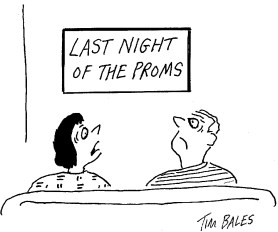
In the face of unendurable pain that must be endured and unimaginable loss that must be imagined, jokes should not be resisted or turned away. Miriam Toews, describing the day that her father ended his life, remembers him assessing the outfit – torn jeans and a green hoodie – that she had been wearing for a fortnight. ‘Did you have much trouble deciding what to wear?’ he asked as he left his ham sandwich uneaten at a family lunch. Afterwards, he made his way to the railway tracks.
A dozen years later, Miriam’s older sister Marjorie died by suicide in the same manner the day before her 52nd birthday. Toews wrote about her father’s life in the non-fictional Swing Low, and about her sister in the astounding novel All My Puny Sorrows. Throughout her work, she has depicted her Mennonite upbringing and her family’s assault by mental illness with both courage and comedy.
Wisecracks punctuate the meditative memoir A Truce That is Not Peace in the same way that a swarm of bees might punctuate a sunny picnic: angry, demanding attention, ceaselessly buzzing. For example, a student tells Toews that, as an older writer, she has had a platform for long enough and should make way for others, before describing the rural farmhouse she and her friends have rented. ‘Where I will be exiled for re-education?’ asks Toews. Another example: her neighbour summons her to discuss a dispute and tells her that she isn’t trying to tell her how to feel. ‘Not yet,’ replies Toews, which causes the woman to banish her immediately.
Snatches of overheard conversation seem to mean nothing and everything
Also in abundance are memories, both ingrained and fleeting, anecdotes, letters, a roll-call of those dead by their own hand, complete with their chosen method, troubling dreams of being shot in the face and less troubling pipe dreams, the most impressive of which is Toews’s ambition to open a Wind Museum. Why should this unlikely attempt to gather the great winds of the world in one place be less successful than the display she once saw in Bratislava of a small collection of travelling alarm clocks?
None of this is what the organisers of the Conversación Comité in Mexico City have in mind when they ask her to address the question ‘Why Do I Write?’, to participate in an event and to allow her essay-length response to be printed in a handsomely illustrated pamphlet. ‘Douchebag question,’ thinks Toews, before wondering if it’s really douchebag answers she’s worried about. In either case, she and the committee do not find common ground, and in due course she is stood down.
One answer might be to fill, or at least to confront, various silences: those left by her father and her sister after their deaths, and also the long periods of not speaking to which both retreated during their illnesses. Toes writes:
My sister is the stark white space around our cluttered, battered, inserted, deleted, ridiculous prose, our messy ink, fouling octopi trapped in barrels on boat decks, gulls shrieking, flailing, dark words and murderous sentences. And she says infinitely more than we do.
But even when the dead are infinitely eloquent we can’t always hear them, and perhaps that’s why we need writers. It’s in the elliptical details, often of domestic life, that Toews communicates the messiness of survival: the possibly demented skunk who keeps getting trapped in her window well; the four-year-old grandson creating a series of paintings entitled ‘Ghosts in Cages’; the snatches of overheard conversation that seem to mean nothing and everything.

Toews is an avid collector of this last phenomenon, including ‘When we do we really do, but we don’t really, do we’ (a couple clarifying whether they argue much); and ‘Well, that’s dang fine, standing in line, don’t get to ride’ (a father queuing for a Ferris wheel with his two kids, only for the wheel to close as he reaches the front). In moments of particularly intense stress, Toews finds herself repeating the soothing words of her children’s gym teacher: ‘I am a docent at the terrarium.’
Reproduced towards the end of the book are the letters that Toews, aged 18, cycling around Europe with Wolfie, a frankly awful-sounding boyfriend, sent her sister in 1982. The one-sided correspondence has been rejected by the Conversación Comité as an inadequate answer to their question, and now we realise Toews is trying it on us. Amid reports of their misadventures – stolen bikes, sleeping in a ditch, rain-disintegrated maps, emotional tussles (‘Wolfie definitely hates my guts now. I can tell he does not want a girlfriend who is a clown’), you can feel the energy she is striving to transmit. She has made a deal with her sister – ‘You live. And I’ll write’ – and is determined to honour it. The committee was wrong. It is an excellent answer to the douchebag question.








Comments